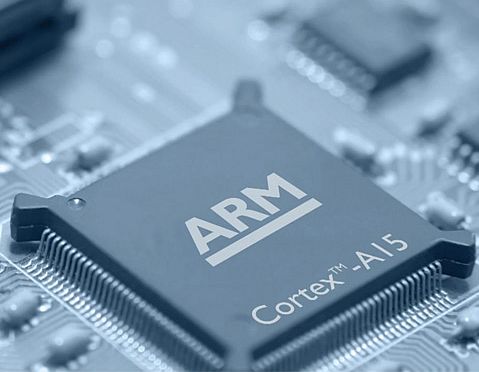ARM Warns Of Mobile Chip Slowdown, Hits Recruitment Brakes

ARM has warned of a mobile device sales slowdown, and has scaled back its recruitment drive
ARM Holdings has issued a sober warning about the current state of the mobile device market, and has scaled back its employee recruitment efforts.
ARM CEO Warren East, in a 2 September interview with the Financial Times, said the company expects that the trend of a slower growth in sales of in the first half of the year many of ARM’s customers – including Qualcomm, Samsung Electronics, Texas Instruments and Nvidia – will continue in the last two quarters, a worrisome sign given that the second half of the year traditionally is particularly strong for chip makers.
Sales Slowdown
East’s warning also comes at a time when a host of device and systems makers – from Apple and Samsung to Nokia, Motorola and Amazon – are preparing to release a host of new products, in time for the crucial holiday shopping season.
 However, he said that the uncertain global economy is forcing many consumers to hold onto money they otherwise would spend on new computing devices, which will impact not only the device makers but also those companies that make processors and other components.
However, he said that the uncertain global economy is forcing many consumers to hold onto money they otherwise would spend on new computing devices, which will impact not only the device makers but also those companies that make processors and other components.
“Many of the chip companies are indicating that they are not expecting an uplift, and mathematically, that will hit us,” East said.
ARM designs low-power chips and sells licenses to those designs to Qualcomm, Samsung and others, who then add their own technologies on top of the designs before selling them to device makers. ARM-designed chips dominate the mobile market, including the fast-growing smartphone and tablet spaces, though Intel is looking to make inroads into those areas.
At the same time, ARM officials also are looking to expand the reach of their designs into such areas as PCs, low-power servers and embedded systems.
Intel Competition
ARM also was hit 4 September when Deutsche Bank analyst Kai Korschelt cut his rating on the company’s stock. Korschelt in a research note noted that smartphone chip prices are expected to fall, Intel’s chances of competing in the mobile space are improving and the ramp of Microsoft’s upcoming Windows RT – the version of Windows 8 that will run on ARM-based machines – could prove slower than expected.
ARM will remain dominant in chips for both smartphones and tablets into 2015, as well as other component areas, such as basebands, touch-screen controllers and camera sensors. He also said that despite the stagnant growth in PC sales, ARM could gain some market share there, as well as in servers.
However, Intel will continue to make its presence felt in the mobile computing space, Korschelt said.
“It is in our view becoming clear that Intel is making meaningful progress in refocusing its processor architecture and roadmap to address the [about 2 billion] long-term unit low power mobile computing market (Smarpthones and tablets),” he wrote, noting that Intel could gain as much as 10 percent of the market over the next three years, impacting ARM.
East and other ARM officials have been dismissive of Intel’s mobile computing push, arguing that Intel’s business model doesn’t transfer well to the space. East also has said that ARM will become a larger player in PCs than Intel will in mobile devices.
Recruitment Brakes
He told the Financial Times that given ARM’s forecast for the second half of the year, the company was slowing its recruitment efforts, hiring fewer than the 200 to 250 engineers a year it brings on board.
However, while the second half of 2012 might be slow, the overall prospects for devices sales into the future are still strong, he said, particularly with the growing demand for more intelligent Internet-connected devices, from smartphones to computers in automobiles and appliances, all of which will need high-performing, low-power processors.
“We get excited about ARM’s technology being designed into all sorts of infrastructure products that make phones work and allow your Internet-connected televisions to communicate with the Internet,” East said. “These sorts of changes unfold over multiple of years. They may be a little slowed by economic cycles, but they are an inexorable trend.”
Are you mad for microprocessors? Try our quiz!